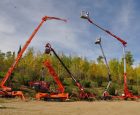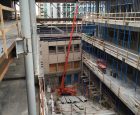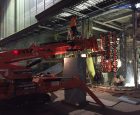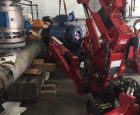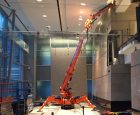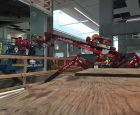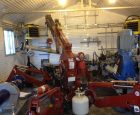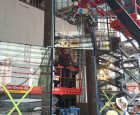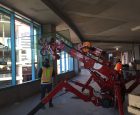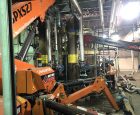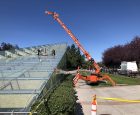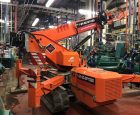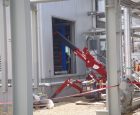
Features
Burnt Timber Lifting Services find niche in Alberta
Every piece of equipment BTLS has is specific for certain types of jobs.
January 6, 2020 By Matt Jones
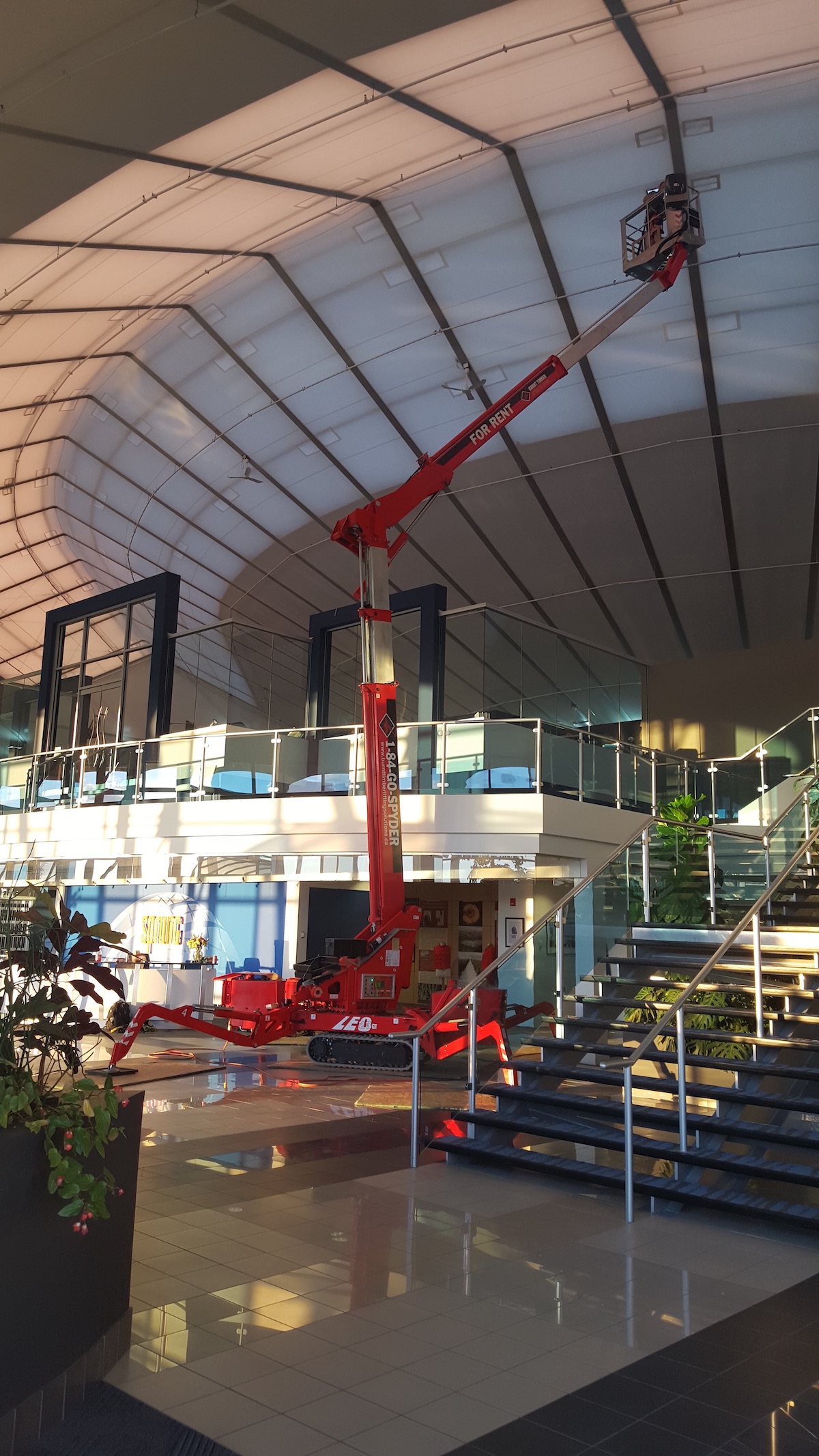
Since 2012, Alberta’s Burnt Timber Lifting Solutions (BTLS) have carved out a niche for themselves in the small crane and limited access space sector of the crane industry. Cam Bridge joined the company shortly after its establishment, but when the original owner left he took over, now serving as both owner and operator of a two-man operation. Bridge has helped the company evolve over time, but the dedication to serving the demand for smaller cranes has remained constant.
“Tim [Tinsley, the previous owner] hadn’t really developed the company to where it’s at now,” says Bridge. “I worked on the products we have now and the operating side versus just bare rentals or sales. But what it was always thought about was that all of our pieces of equipment, from the smallest to the largest, will either fit through a single door or a double door. That’s what everything’s based around.”
BTLS offer both bare rentals of the equipment, as well as providing an operator should the job require it. Bridge says that larger operators have told him that they consider smaller cranes to be ‘an incident waiting to happen,’ due to the increased hazards of the small quarters where the cranes are often used – a crane operator used to operating outdoors with the sky above their heads now has to remember there’s a roof a few feet up. So, when the situation calls for it, BTLS will provide an operator.
“We are very specific with where we take our equipment, even when we rent it, we want to make sure that we know what our customer’s needs are,” says Bridge. “We don’t mind bare renting, but we want to make sure that they get the right piece of equipment. So, we ask lots of questions. A lot of times, people get these machines and they don’t really know how to use them properly. On certain jobs, it’s easier for us to just come and do the job and not have to come back again rather than drop the machine off, show them how to run it, wait two days and then go back and pick it up.”
BTLS primarily offer Jekko-built mini-cranes and Spydercranes, by UNIC – Bridge cites those two brands, as well as Maeda, as the top names in the sector.
“The UNIC 295, in my opinion, is probably the most versatile crane [in the mini-crane sector],” says Bridge. “The Jekkos are probably a little bit more sophisticated. They have some nicer options for hydraulic jibs and stuff like that. The way that they operate, they’re a very smooth machine. Not saying that the UNICs aren’t, it’s just that the remote makes them a little bit tougher to operator. It just requires a little bit more skill.”
Bridge says that every piece of equipment BTLS has is specific for certain types of jobs. It’s difficult to have the right machinery for every purposed, as depending on the location and circumstances everyone wants something different, even down to how the unit is powered.
“We have customers that do a lot of curtain wall install, so they’re always outside,” says Bridge. “Working in the cold weather in the winters, battery powered equipment doesn’t work very well for them. But we also have those same customers that do work inside buildings on maintenance or construction and they all want batteries. There’s a huge variety of equipment that you can have, but its making the choice of what you can work with.”
Bridge acknowledges that the smaller overheads related to this business model are both literal and figurative – serving this niche sector does not guarantee a massive lucrative return on investment. And they do end up competing with larger companies that have some mini-cranes as part of a larger fleet. But BTLS have made it work by diversifying into other small-scale offerings, including vacuum glass lifting products and manlifts.
Between the mini-cranes and the glass work, BTLS’s work has been very intricate – not necessarily challenging, Bridge notes, as they’ve gotten used to it, but certainly intricate and often only with millimeters of clearance. Their mini-crane offerings have been utilized in many unique locations (such as installing a curtain wall on the 30th floor of Edmonton’s still-under-construction Stantec building), and under very cramped circumstances.
“A lot of people don’t get to experience a lot like crane operators,” says Bridge. “It’s very tight. Sometimes, you have to fish the jib through a hole that’s one foot square to do a pick through there. It’s just interesting work.”
Print this page
